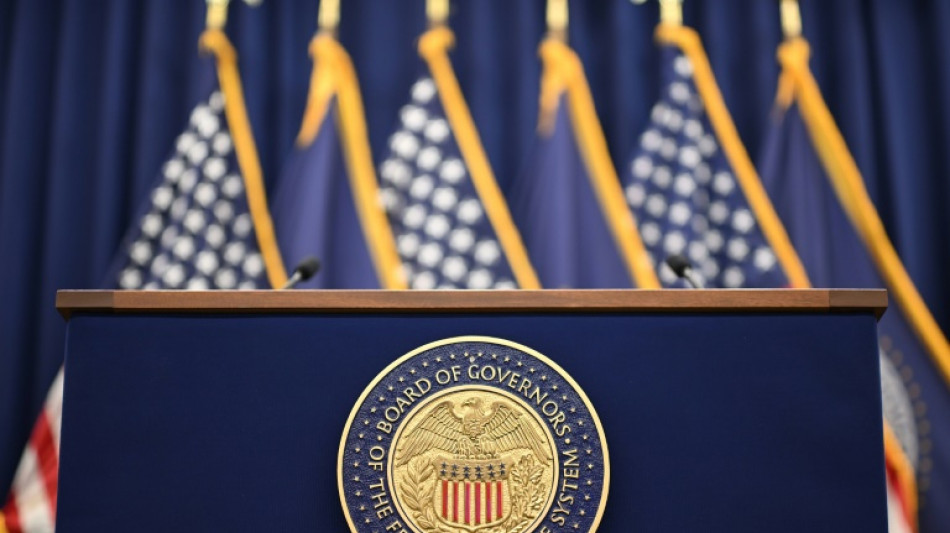

US Fed poised for first rate cut of 2025 as political tension mounts
The US Federal Reserve is widely expected to make its first interest rate cut of the year at its policy meeting this week, spurred by a weakening jobs market -- but political tension looms over the gathering.
The Fed's likely move would follow a monthslong push from President Donald Trump to slash rates, and comes amid growing concern about political pressure on the independent central bank.
Since the bank's last reduction in December, it has held interest rates at a range between 4.25 percent and 4.50 percent as policymakers monitor the effects of Trump's sweeping tariffs on inflation.
Analysts now broadly expect a 25 basis points rate cut at the end of its two-day meeting on Wednesday, as hiring slows.
"What's interesting is that it's very clear what the Fed is going to do when they meet," said Josh Lipsky, chair of international economics at the Atlantic Council.
"Yet, despite that, there's high drama around this meeting," he added, referring to personnel issues on the rate-setting Federal Open Market Committee (FOMC).
While Trump has dropped threats of ousting Fed Chair Jerome Powell over renovation costs at the central bank's Washington headquarters, the president moved to fire Fed Governor Lisa Cook in August over mortgage fraud allegations.
Cook, who was appointed under former president Joe Biden and is the first Black woman to serve on the Fed's board of governors, swiftly mounted a legal challenge against her removal.
She has managed to remain in place while the lawsuit, which could have implications for similar moves against other Fed officials, plays out.
Meanwhile, the early resignation in August of another Fed governor, Adriana Kugler, created a vacancy that Trump has rushed to fill with his chief economic adviser Stephen Miran.
Miran chairs the White House Council of Economic Advisers but has drawn criticism from Democratic lawmakers over his plans to take a leave of absence -- rather than resign -- from the Trump administration if confirmed.
A panel has nonetheless advanced his nomination and if confirmed quickly by the Republican-majority Senate, he could join the Fed in its next rate meeting.
- Recession risks -
Come Wednesday, markets will be focused on signals surrounding the Fed's future pace -- and size -- of rate cuts, Lipsky said.
KPMG chief economist Diane Swonk expects this to mark the "start of an easing cycle that the Fed won't want to commit to."
Traders will also monitor Powell's remarks on whether he sees inflation risks abating, particularly as worries over price pressures previously held back rate reductions.
"The inflation genie has not quite been put back into the bottle," said Wells Fargo analysts in a recent note.
Data released Thursday showed that the consumer price index, a key inflation gauge, ticked up to 2.9 percent in August -- its highest pace since the start of the year.
"The labor market is in a precarious position, with nearly stagnant job growth, deteriorating worker sentiment and an unemployment rate that has inched above many estimates of full employment," Wells Fargo noted.
"With so little positive momentum in the labor market, recession risks have ticked higher," the report said.
- Independence worries -
With Miran's potential arrival, markets will be monitoring how much division there is within the FOMC on whether it should make a 25 basis points rate cut, a 50 basis points reduction, or keep rates unchanged.
"That's not something we're used to seeing from the Fed," Lipsky said. "This is a group that votes almost in unison over decades."
Analysts also warn that broader changes to the Fed's make-up could happen more swiftly than markets expect.
Presidents of the 12 regional Fed banks come up for reappointment every five years, meaning the Fed board of governors could replace them -- although this has not happened before.
"The markets, I think, are underpricing some of the risks to central bank independence and what it would mean for monetary policy going forward," Lipsky said.
U.Solana--GM



